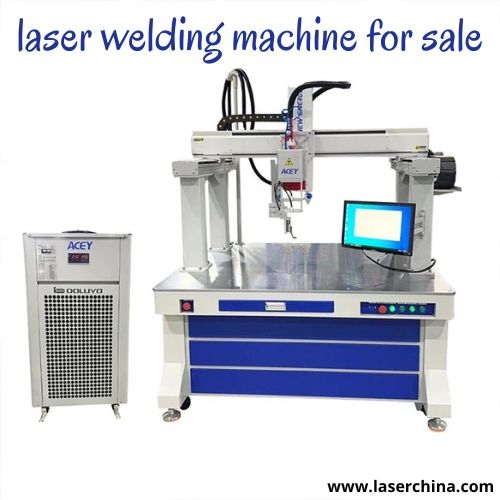AFRICA- INDUSTRIAL REVOLUTION NOW. POLITICAL REVOLUTION NOW FOR THE PEOPLE AFRICA NOW:-
Deepening Local Industry Revival in Africa: Training, Clusters, Linkages & Community-Driven Transformation.
Skills Development & Industrial Training-
Goal: Equip the workforce — especially youth and women — with practical, hands-on skills to power industrial revival.
Key Strategies:
Expand and modernize TVET centers (Technical and Vocational Education Training)
Link training to actual industrial needs (not just theory)
Support apprenticeship + mentorship programs
Incentivize companies to offer on-the-job training
African Examples:
Kenya: The Kenya Youth Employment Opportunities Project (KYEOP) trains over 70,000 youth in trades like welding, tailoring, mechanics.
Ethiopia: Integrated Agro-Industrial Parks have in-house training centers linked to local universities and farms.
Nigeria: Industrial Training Fund (ITF) partners with private factories to train young technicians.
Ghana: TVET reforms now embed entrepreneurship modules in all technical programs.
Quick Wins:
Launch "Train and Earn" models to keep youth motivated.
Offer digital trades too (graphic design, e-commerce, coding).
Set up rural mobile training buses with solar-powered tools.
4. Local Manufacturing Clusters
Goal: Create regional industry zones where small manufacturers share infrastructure, supply chains, and customers.
Features of a Manufacturing Cluster:
Central factory tools (e.g., grain mill, packaging, solar press)
Common warehousing, internet, transport, and power
Business incubators, mentoring, and e-commerce support
Linkage with local universities, banks, and farmers
African Examples:
Ghana: “One District One Factory” (1D1F) supports over 300 local clusters across the country.
Ethiopia: Hawassa Industrial Park focuses on textiles and garments — powered by renewable energy.
South Africa: Industrial Development Zones (IDZs) like Coega and Dube TradePort support agro-processing and automotive parts.
Rwanda: Kigali Special Economic Zone supports electronics, packaging, and furniture manufacturing.
Quick Wins:
Start with mini-clusters using container workshops in rural areas.
Provide shared access to cold storage, power tools, and distribution.
Create "craft & food parks" around city outskirts to house SMEs affordably.
5. Build Local Supply Chains (Backward & Forward Linkages)
Goal: Ensure that every local product feeds into a wider value chain — from raw materials to end markets.
Backward Linkages (Input Sourcing)
Support farmers, artisans, recyclers to feed raw materials into processors.
Develop local packaging and container manufacturing.
Encourage local tool-making and spare part production.
Forward Linkages (Sales & Distribution)
Create local market outlets, digital shops, and export channels.
Train youth in logistics and last-mile delivery.
Connect products to hospitals, hotels, schools, and state buyers.
African Examples:
Kenya: Dairy cooperatives supply milk to processors and school milk programs.
Nigeria: Dangote Group built an entire backward linkage chain for its cement, tomato, and fertilizer arms.
Rwanda: Small honey producers are linked to cooperatives, packaging firms, and tourism markets.
Quick Wins:
Help SMEs map their value chains with visual charts.
Create local supplier directories per district or region.
Use co-op models to collectively manage inputs and outputs.
6. Use Technology to Boost Local Markets
Goal: Enable local producers to access customers, finance, and tools through mobile and digital platforms.
Areas of Tech Application:
Mobile payments & microcredit (M-Pesa, Opay, Flutterwave)
Online sales (WhatsApp, Instagram, afriprime.net, corkroo.com, sappertask.com)
Logistics & inventory tracking (TMS, KoboToolbox, logistics apps)
Training & advisory services (YouTube, Coursera, SMS alerts)
African Examples:
Kenya: Digital agriculture platforms help farmers track prices and connect with buyers (e.g., Twiga Foods).
Nigeria: Paystack and Flutterwave power local SMEs to receive payments online.
South Africa: Many township businesses use WhatsApp groups for orders and customer service.
Ghana: Tonaton and Jiji empower local artisans to list products without websites.
Quick Wins:
Offer “Tech for Business” bootcamps in markets and churches.
Support youth-led agencies to help older entrepreneurs go digital.
Create local product apps that list regional goods with mobile pay integration.
7. Government Policy Actions
Goal: Create an enabling policy environment that promotes local production, protects small businesses, and attracts investment.
Key Actions:
Public procurement quotas for local goods.
Simplified business registration and tax exemption for startups.
Import substitution for goods that can be made locally.
SME development ministries with clear budgets and KPIs.
Investment in public infrastructure (roads, markets, energy, broadband).
African Examples:
Ghana: Local Content Act requires oil & gas companies to source inputs locally.
South Africa: “Buy Local” campaigns promote home-grown brands in government contracts.
Rwanda: Made-in-Rwanda policy offers tax breaks and branding support.
Ethiopia: Industrial parks benefit from special export incentives and duty-free inputs.
Quick Wins:
Designate one agency per region to handle all SME paperwork.
Announce national campaigns to support “Local First” shopping.
Pass policies that require 40–60% of government contracts to go to local producers.
8. Community & Youth Mobilization
Goal: Activate the people — especially youth and women — to lead grassroots economic revival.
Strategies:
Create community cooperatives for production, farming, and savings.
Launch youth innovation funds for startup ideas.
Hold local trade fairs, idea competitions, and "hackathons".
Use religious institutions, schools, and media to promote economic patriotism.
African Examples:
Nigeria: N-Power program pays youth to train and work in agriculture, tech, and education.
Ghana: NEIP (National Entrepreneurship & Innovation Programme) supports youth-led businesses.
Uganda: SACCOs and VSLA groups empower women with micro-loans and local enterprise support.
Rwanda: National Youth Council runs civic entrepreneurship bootcamps.
Quick Wins:
Hold “Local Economy Revival Days” to showcase talent and local goods.
Start village-based skills clubs (e.g., carpentry, digital media, soap making).
Mobilize youth to use TikTok/Instagram to promote local businesses.
Summary Table (Key Pillars & Country Inspiration)
Pillar- Description Country Models
Skills Development- Industry-linked, hands-on learning Kenya, Nigeria, Ghana.
Manufacturing Clusters- Shared industrial zones Ghana (1D1F), Ethiopia (Parks).
Local Supply Chains- Backward & forward integration Nigeria, Kenya, Rwanda.
Digital Enablement- Tech for payments, sales, logistics Kenya, Ghana, South Africa.
Government Action- Local content laws, SME policy Rwanda, Ghana, Nigeria.
Youth Mobilization- Skills, startup funds, community co-ops Uganda, Ghana, Nigeria.
By Jo Ikeji-Uju.
sappertekinc@gmail.com
https://afriprime.net/Ikeji
*Share your comments positive or negative........
AFRICA- INDUSTRIAL REVOLUTION NOW. POLITICAL REVOLUTION NOW FOR THE PEOPLE AFRICA NOW:-
Deepening Local Industry Revival in Africa: Training, Clusters, Linkages & Community-Driven Transformation.
Skills Development & Industrial Training-
Goal: Equip the workforce — especially youth and women — with practical, hands-on skills to power industrial revival.
Key Strategies:
Expand and modernize TVET centers (Technical and Vocational Education Training)
Link training to actual industrial needs (not just theory)
Support apprenticeship + mentorship programs
Incentivize companies to offer on-the-job training
African Examples:
Kenya: The Kenya Youth Employment Opportunities Project (KYEOP) trains over 70,000 youth in trades like welding, tailoring, mechanics.
Ethiopia: Integrated Agro-Industrial Parks have in-house training centers linked to local universities and farms.
Nigeria: Industrial Training Fund (ITF) partners with private factories to train young technicians.
Ghana: TVET reforms now embed entrepreneurship modules in all technical programs.
Quick Wins:
Launch "Train and Earn" models to keep youth motivated.
Offer digital trades too (graphic design, e-commerce, coding).
Set up rural mobile training buses with solar-powered tools.
4. Local Manufacturing Clusters
Goal: Create regional industry zones where small manufacturers share infrastructure, supply chains, and customers.
Features of a Manufacturing Cluster:
Central factory tools (e.g., grain mill, packaging, solar press)
Common warehousing, internet, transport, and power
Business incubators, mentoring, and e-commerce support
Linkage with local universities, banks, and farmers
African Examples:
Ghana: “One District One Factory” (1D1F) supports over 300 local clusters across the country.
Ethiopia: Hawassa Industrial Park focuses on textiles and garments — powered by renewable energy.
South Africa: Industrial Development Zones (IDZs) like Coega and Dube TradePort support agro-processing and automotive parts.
Rwanda: Kigali Special Economic Zone supports electronics, packaging, and furniture manufacturing.
Quick Wins:
Start with mini-clusters using container workshops in rural areas.
Provide shared access to cold storage, power tools, and distribution.
Create "craft & food parks" around city outskirts to house SMEs affordably.
5. Build Local Supply Chains (Backward & Forward Linkages)
Goal: Ensure that every local product feeds into a wider value chain — from raw materials to end markets.
Backward Linkages (Input Sourcing)
Support farmers, artisans, recyclers to feed raw materials into processors.
Develop local packaging and container manufacturing.
Encourage local tool-making and spare part production.
Forward Linkages (Sales & Distribution)
Create local market outlets, digital shops, and export channels.
Train youth in logistics and last-mile delivery.
Connect products to hospitals, hotels, schools, and state buyers.
African Examples:
Kenya: Dairy cooperatives supply milk to processors and school milk programs.
Nigeria: Dangote Group built an entire backward linkage chain for its cement, tomato, and fertilizer arms.
Rwanda: Small honey producers are linked to cooperatives, packaging firms, and tourism markets.
Quick Wins:
Help SMEs map their value chains with visual charts.
Create local supplier directories per district or region.
Use co-op models to collectively manage inputs and outputs.
6. Use Technology to Boost Local Markets
Goal: Enable local producers to access customers, finance, and tools through mobile and digital platforms.
Areas of Tech Application:
Mobile payments & microcredit (M-Pesa, Opay, Flutterwave)
Online sales (WhatsApp, Instagram, afriprime.net, corkroo.com, sappertask.com)
Logistics & inventory tracking (TMS, KoboToolbox, logistics apps)
Training & advisory services (YouTube, Coursera, SMS alerts)
African Examples:
Kenya: Digital agriculture platforms help farmers track prices and connect with buyers (e.g., Twiga Foods).
Nigeria: Paystack and Flutterwave power local SMEs to receive payments online.
South Africa: Many township businesses use WhatsApp groups for orders and customer service.
Ghana: Tonaton and Jiji empower local artisans to list products without websites.
Quick Wins:
Offer “Tech for Business” bootcamps in markets and churches.
Support youth-led agencies to help older entrepreneurs go digital.
Create local product apps that list regional goods with mobile pay integration.
7. Government Policy Actions
Goal: Create an enabling policy environment that promotes local production, protects small businesses, and attracts investment.
Key Actions:
Public procurement quotas for local goods.
Simplified business registration and tax exemption for startups.
Import substitution for goods that can be made locally.
SME development ministries with clear budgets and KPIs.
Investment in public infrastructure (roads, markets, energy, broadband).
African Examples:
Ghana: Local Content Act requires oil & gas companies to source inputs locally.
South Africa: “Buy Local” campaigns promote home-grown brands in government contracts.
Rwanda: Made-in-Rwanda policy offers tax breaks and branding support.
Ethiopia: Industrial parks benefit from special export incentives and duty-free inputs.
Quick Wins:
Designate one agency per region to handle all SME paperwork.
Announce national campaigns to support “Local First” shopping.
Pass policies that require 40–60% of government contracts to go to local producers.
8. Community & Youth Mobilization
Goal: Activate the people — especially youth and women — to lead grassroots economic revival.
Strategies:
Create community cooperatives for production, farming, and savings.
Launch youth innovation funds for startup ideas.
Hold local trade fairs, idea competitions, and "hackathons".
Use religious institutions, schools, and media to promote economic patriotism.
African Examples:
Nigeria: N-Power program pays youth to train and work in agriculture, tech, and education.
Ghana: NEIP (National Entrepreneurship & Innovation Programme) supports youth-led businesses.
Uganda: SACCOs and VSLA groups empower women with micro-loans and local enterprise support.
Rwanda: National Youth Council runs civic entrepreneurship bootcamps.
Quick Wins:
Hold “Local Economy Revival Days” to showcase talent and local goods.
Start village-based skills clubs (e.g., carpentry, digital media, soap making).
Mobilize youth to use TikTok/Instagram to promote local businesses.
Summary Table (Key Pillars & Country Inspiration)
Pillar- Description Country Models
Skills Development- Industry-linked, hands-on learning Kenya, Nigeria, Ghana.
Manufacturing Clusters- Shared industrial zones Ghana (1D1F), Ethiopia (Parks).
Local Supply Chains- Backward & forward integration Nigeria, Kenya, Rwanda.
Digital Enablement- Tech for payments, sales, logistics Kenya, Ghana, South Africa.
Government Action- Local content laws, SME policy Rwanda, Ghana, Nigeria.
Youth Mobilization- Skills, startup funds, community co-ops Uganda, Ghana, Nigeria.
By Jo Ikeji-Uju.
sappertekinc@gmail.com
https://afriprime.net/Ikeji
*Share your comments positive or negative........









